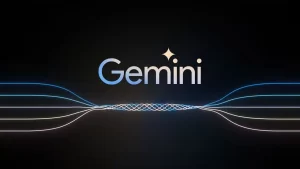Introduction:
Alphabet
In the ever-competitive landscape of technology, strategic alliances often redefine industry standards and revolutionize consumer experiences. Recent speculation surrounding Apple’s interest in licensing Alphabet’s Gemini AI for iPhones has sparked a flurry of anticipation and analysis. This essay aims to delve deeper into the multifaceted implications of such a collaboration, examining its potential to reshape market dynamics, drive technological innovation, and elevate user experiences to unprecedented levels.
- Contextual Background:
- Alphabet, the parent company of Google, has long been recognized as a trailblazer in artificial intelligence, with Gemini AI representing a pinnacle of its innovative endeavors.
- Apple’s iPhones have established themselves as the epitome of premium mobile technology, renowned for their seamless integration of hardware and software.
- Historically, industry-shaping partnerships between tech giants have propelled advancements, setting benchmarks for excellence and market leadership.
- Market Dynamics and Strategic Significance:
- The tech sector thrives on innovation and competition, with Alphabet and Apple at the forefront of driving technological evolution.
- Licensing Gemini AI to Apple could signify a strategic move for Alphabet, diversifying revenue streams and expanding its influence beyond the realms of online advertising.
- For Apple, integration of Gemini AI could reinforce its commitment to delivering cutting-edge user experiences, enhancing device functionality and ecosystem cohesion.
- Technological Advancements and Synergies:
- Gemini AI boasts a plethora of advanced capabilities, ranging from machine learning algorithms to natural language processing and computer vision.
- Integration into iPhones could unlock a myriad of possibilities, from intelligent personalization features to immersive augmented reality experiences.
- The symbiosis of Alphabet’s AI prowess and Apple’s hardware excellence could set new benchmarks for mobile computing, pushing the boundaries of innovation.
- Implications for Consumers:
- End-users stand to benefit from a convergence of AI-driven intelligence and intuitive design, experiencing a seamless fusion of functionality and simplicity.
- Enhanced virtual assistants, context-aware recommendations, and personalized experiences could redefine the way individuals interact with their devices.
- However, privacy concerns may emerge, necessitating robust safeguards and transparent data policies to maintain consumer trust and confidence.
- Future Prospects and Outlook:
- The outcome of negotiations between Alphabet and Apple holds immense significance for the trajectory of both companies and the broader tech industry.
- Success could catalyze a new era of collaboration and innovation, driving value creation and propelling industry standards to unprecedented heights.
- Conversely, failure to capitalize on synergies or address potential challenges could result in missed opportunities and reputational risks for both parties.
- Market Dynamics:
Conclusion:
As the tech world eagerly awaits the outcome of discussions between Alphabet and Apple, the potential ramifications of licensing Gemini AI for iPhones loom large. Beyond the realms of corporate strategy, this collaboration has the power to reshape consumer experiences, redefine market dynamics, and propel technological innovation to new frontiers. Whether it culminates in a landmark agreement or serves as a catalyst for future endeavors, one thing remains certain: the journey towards pioneering synergy and transformative innovation continues unabated in the ever-evolving landscape of technology.


